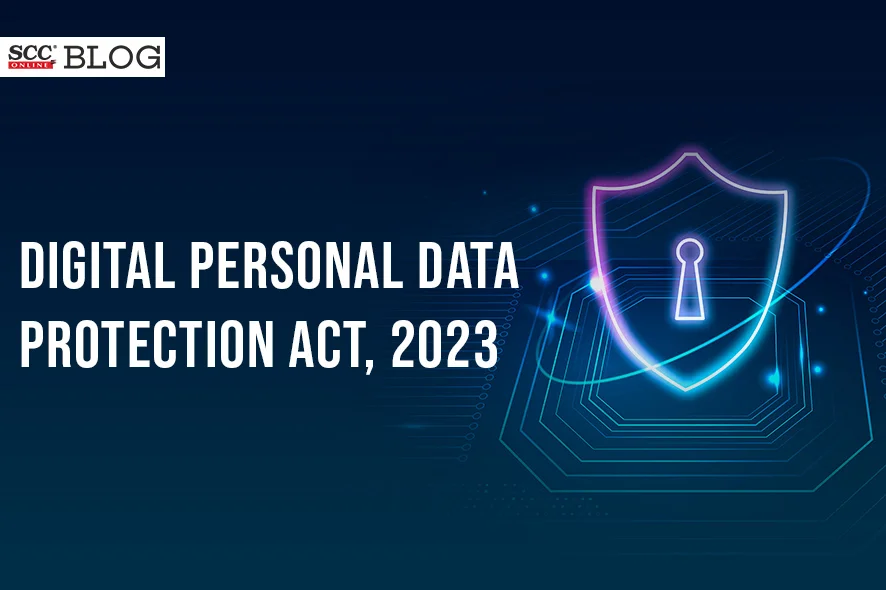On 11-08-2023, the President has given his assent to Digital Personal Data Protection Bill, 2023. The object of the Act is to provide for the processing of digital personal data in a manner that recognises both the right of individuals to protect their personal data and the need to process such personal data for lawful purposes and for matters connected therewith or incidental thereto.
Effective Date: It shall come into force on such date as the Central Government may, by notification in the Official Gazette, appoint and different dates may be appointed for different provisions of this Act and any reference in any such provision to the commencement of this Act shall be construed as a reference to the coming into force of that provision.
Applicability: Apply to the processing of digital personal data within the territory of India where the personal data is collected in digital form; or in non-digital form and digitised subsequently; also apply to processing of digital personal data outside the territory of India, if such processing is in connection with any activity related to offering of goods or services to Data Principals within the territory of India.
Key points:
- A person may process the personal data of a Data Principal for a lawful purpose for which the Data Principal has given her consent; or for certain legitimate uses.
- Data fiduciaries will be obligated to maintain the accuracy of data, keep data secure, and delete data once its purpose has been met.
- The consent given by the Data Principal shall be free, specific, informed, unconditional and unambiguous with a clear affirmative action, and shall signify an agreement to the processing of her personal data for the specified purpose and be limited to such personal data as is necessary for such specified purpose.
- The Data Fiduciary shall, before processing any personal data of a child or a person with disability who has a lawful guardian obtain verifiable consent of the parent of such child or the lawful guardian, as the case may be, in such manner as may be prescribed.
- Data Principal shall have the right to obtain from the Data Fiduciary to whom she has previously given consent, including consent for processing of personal data, upon making to it a request in such manner as may be prescribed.
- A Data Principal shall have the right to correction, completion, updating and erasure of her personal data for the processing of which she has previously given consent, including consent in accordance with any requirement or procedure under any law for the time being in force.
- A Data Fiduciary shall, upon receiving a request for correction, completion or updating from a Data Principal,—
(a) correct the inaccurate or misleading personal data;
(b) complete the incomplete personal data; and
(c) update the personal data.
- A Data Principal shall have the right to have readily available means of grievance redressal provided by a Data Fiduciary or Consent Manager in respect of any act or omission of such Data Fiduciary or Consent Manager regarding the performance of its obligations in relation to the personal data of such Data Principal or the exercise of her rights.
- A Data Principal shall have the right to nominate, in such manner as may be prescribed, any other individual, who shall, in the event of death or incapacity of the Data Principal, exercise the rights of the Data Principal.
- The Central Government will establish the Data Protection Board of India. Key functions of the Board include: (i) monitoring compliance and imposing penalties, (ii) directing data fiduciaries to take necessary measures in the event of a data breach, and (iii) hearing grievances made by affected persons. Board members will be appointed for two years and will be eligible for re-appointment.
- The Schedule specifies penalties for various offences such as up to: (i) Rs 200 crore for non-fulfilment of obligations for children, and (ii) Rs 250 crore for failure to take security measures to prevent data breaches. Penalties will be imposed by the Board after conducting an inquiry.
Note: “Data Fiduciary” means any person who alone or in conjunction with other persons determines the purpose and means of processing of personal data;
“Data Principal” means the individual to whom the personal data relates and where such individual is—
(i) a child, includes the parents or lawful guardian of such a child;
(ii) a person with disability, includes her lawful guardian, acting on her behalf;
“Data Processor” means any person who processes personal data on behalf of a Data Fiduciary;







